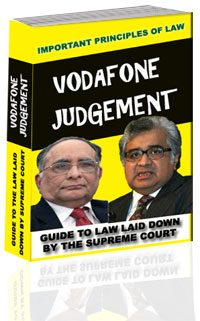
Why The Retrospective Amendments in Finance Bill 2012 May Not Be Valid
Shri. K. C. Singhal, Advocate, VP, ITAT (Retd)
The author, a former Vice-President of the Tribunal & now a practicing advocate, explains why the retrospective amendments proposed in the Finance Bill 2012 may not meet the test of law. He also points out that retrospective amendments to reverse settled principles of law result in enormous harassment for the tax payer and send out an adverse message to citizens & foreign investors that the India does not play fair
A bare look at the Finance Bill reveals that various amendments are proposed with retrospective effect from the date the provisions were enacted originally in the Income Tax Act 1962. The competence of the legislature to enact or amend the law with retrospective effect is not in doubt but exercise of such power was rare. It used to be an exception rather than the rule. But this time, the retrospective amendments are being proposed just to nullify the effect of judicial decisions rendered by the courts and the tribunal. All the retrospective amendments are proposed in the guise of removing doubts as if the proposed amendments were the intent of the legislature from the inception. No objection can be raised if the decisions had been rendered overruling such legislative intent. But if no such legislative intent can be inferred then such proposals cannot be said to be bonafide. Nothing has been pointed out to indicate such intent in the year 1962 when the Act was enacted.









